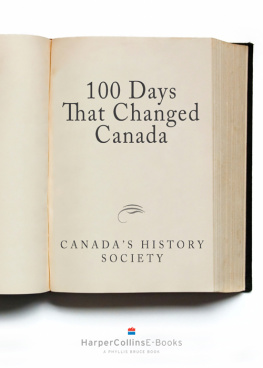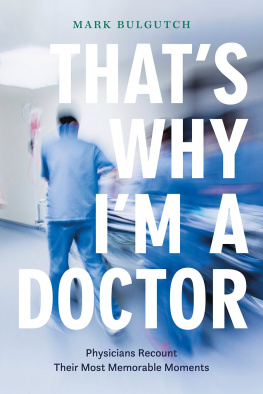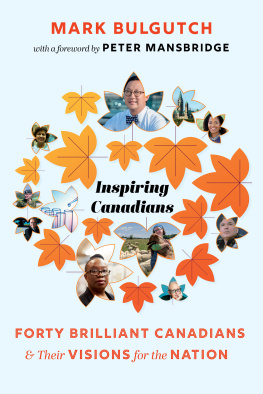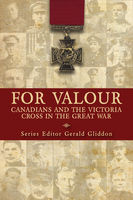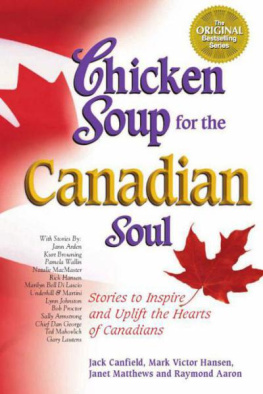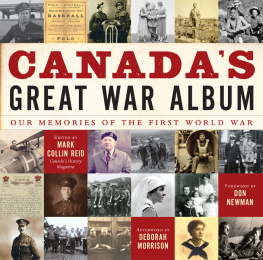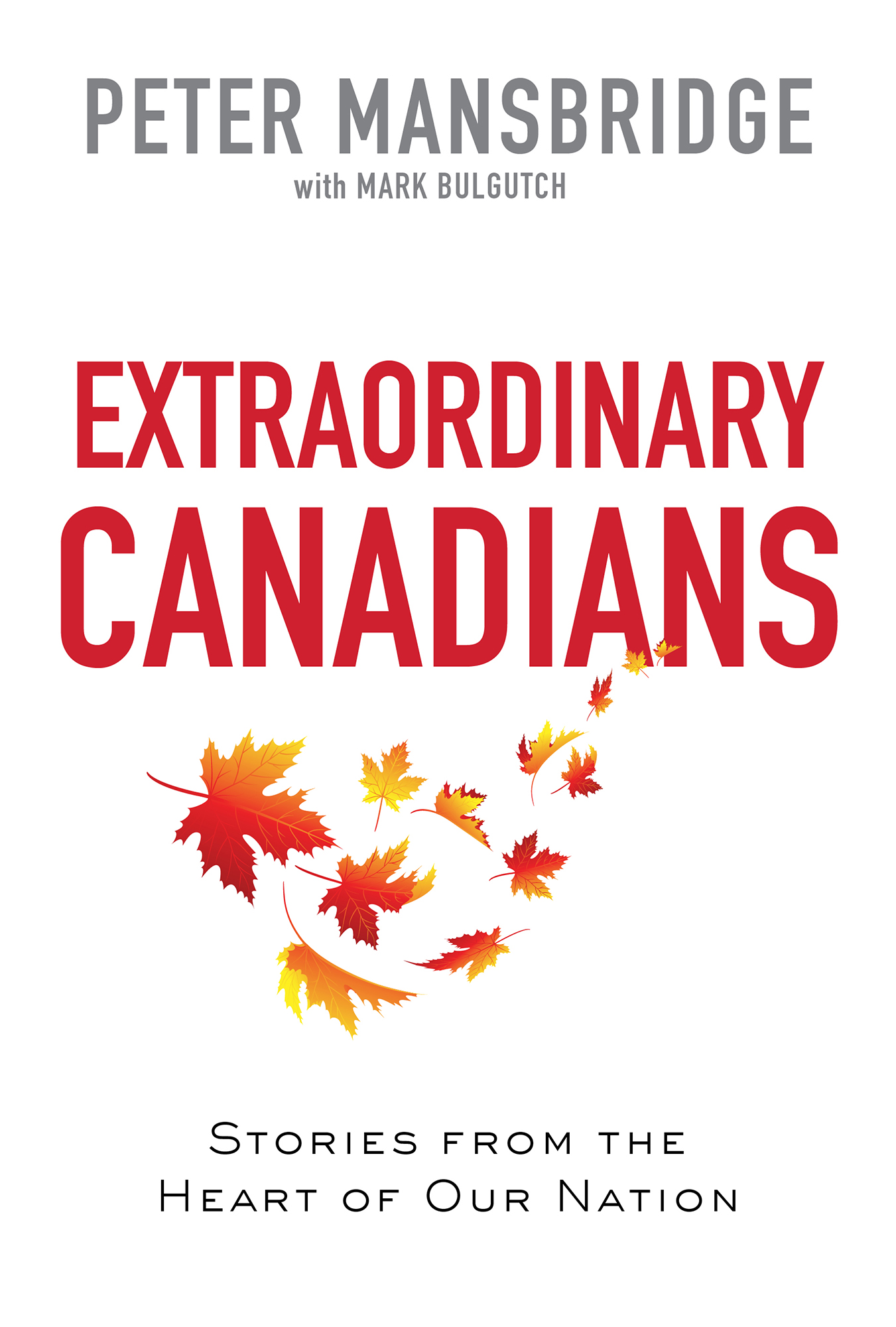Contents
Guide

Simon & Schuster Canada
A Division of Simon & Schuster, Inc.
166 King Street East, Suite 300
Toronto, Ontario M5A 1J3
www.SimonandSchuster.ca
Copyright 2020 by Simon & Schuster Canada
All photos courtesy of authors unless otherwise specified.
Reasonable efforts have been made to contact copyright holders for permission and to give credit. If additional information is provided, changes may be made to future printings.
All rights reserved, including the right to reproduce this book or portions thereof in any form whatsoever. For information address Simon & Schuster Canada Subsidiary Rights Department, 166 King Street East, Suite 300, Toronto, Ontario, M5A 1J3.
This Simon & Schuster Canada edition November 2020
SIMON & SCHUSTER CANADA and colophon are trademarks of Simon & Schuster, Inc.
For information about special discounts for bulk purchases, please contact Simon & Schuster Special Sales at 1-800-268-3216 or .
Author photo courtesy of Peter Mansbridge | Jacket Image: Getty Images
Library and Archives Canada Cataloguing in Publication
Title: Extraordinary Canadians: stories from the heart of our nation / Peter Mansbridge with Mark Bulgutch.
Names: Mansbridge, Peter, author. | Bulgutch, Mark, author.
Description: Simon & Schuster Canada edition.
Identifiers: Canadiana (print) 20200203002 | Canadiana (ebook) 20200203010 | ISBN 9781982134525 (hardcover) | ISBN 9781982134600 (ebook)
Subjects: LCSH: HeroesCanadaBiography. | LCSH: CanadaBiography. | LCGFT: Biographies.
Classification: LCC FC25 .M36 2020 | DDC 920.071dc23
ISBN 978-1-9821-3452-5
ISBN 978-1-9821-3460-0 (ebook)
To all those extraordinary Canadians out there, you make us who we are.
Introduction
T he Canadian military cemetery at Bny-sur-Mer in northwestern France is just a few kilometres from the Normandy coast. On a clear summers day, standing among the headstones, you can see the water and the beaches. The same beaches where hundreds of young Canadian boys were cut down by German guns on June 6, 1944. D-Day.
Many of them had been out of the landing craft that had brought them across the English Channel for only a few desperate seconds. They were strafed and lay dying in the blood and sand and would never know that they had helped spearhead one of Canadas greatest military accomplishments. Our countrys dead from the Normandy campaign totaled more than two thousand lads.
Now they lie in the ground at Bny-sur-Mer. Its a quiet, peaceful place, a beautiful cemetery lined with Canadian maple trees. A piece of Canada almost hidden in a tiny corner of another country.
What do we call those men? We call them heroes.
Now, keep that image in the back of your mind and come with me to another, very different front.
The Olympic hockey arena in Sochi, Russia, in 2014. Canadas formidable womens hockey team, winners of the previous three gold medals, was down 20 to their archrival, the United States, and there were less than four minutes to play. The end of an era was looming.
But thats not what happened. With 3:26 left on the clock, Canadas Brianne Jenner scored when the puck bounced off her leg and into the American net. Then, with less than a minute left, 54.6 seconds to be exact, Marie-Philip Poulin scored to tie the game. The unbelievable had happened. A tie is not a win. It was on to overtime, and when Canada picked up an early penalty, the nation feared the comeback was over. But, again, the fairy tale was not to be crushed. At 8:10 into overtime, Poulin took a pass to the side of the net and blasted it home.
So, what do we call those women? Actually, we call them heroes too.
These are two very different examples of what a hero is, and, no, Im not suggesting that we are abusing the word by equating war and sports. What Im trying to suggest is that hero is a description that covers a wide range of possibilities, and there are a lot of stories that fall into the space between dying for your country and winning for your country.
Thats what this book is about. Its about people who have put the lives of Canadians of all walks of life first. Thats what being a hero means to me.
Weve all witnessed heroes very recently. Many of them. Theyre the frontline health-care workers who risked everything to be there for us in the battle against COVID-19: doctors, nurses, hospital staff; first responders at police, fire, and paramedic stations; grocery store clerks, truck drivers, farmers, postal workersthe list is long and we must never forget them. While we did our part by staying at home, they defined extraordinary by leaving their families every day and being on the job for us. One of the stories in the pages ahead will capture just one example of these recent extraordinary Canadians.
Before I started writing, people used to ask me, Whos your hero, Peter? I never hesitated. Since I am a baby boomer, much of my youth was spent revering what Tom Brokaw calls the greatest generation, the one that preceded mine. So, of course, my father, a veteran himself, was often front and centre in my stories. But so was a lad from Winnipeg by the name of Andrew Mynarski.
On a June night in 1944, Mynarski, a mid-upper gunner on a Lancaster bomber, joined his fellow crew members on board their plane for a mission over the continent. It was supposed to be routine, but it wasnt. Once they were over the target, they were first hit by flak and then attacked by a German night fighter. With the plane crippled, listing from side to side and plummeting toward earth, the pilot ordered everyone to jump.
One after another, they bailed out until Mynarski stood alone at the doorway. He looked back and saw the tail gunner, Pat Brophy, trapped in his tiny, cramped position. Mynarski abandoned his jump and crawled back through the burning wreckage to help his buddy. With his clothes and his parachute pack on fire, he pushed and pulled as best he could, but nothing worked. Finally, Brophy yelled at him to save himself, to jump. Mynarski refused, but Brophy insisted.
Mynarski went back to the door, looked at Brophy, saluted, and said, Good night, sir! And then he jumped.
Andrew Mynarski didnt survive the night.
By a miracle, Pat Brophy did.
Many years later, I met Brophy while I was on assignment in northern Ontario, where he was living at the time. As I listened to his story, I got chills. Even today, it makes me tear up. But his story also made me realize that if Pat Brophy hadnt survived that night, no one would ever have learned about Andrew Mynarskis heroism. Because they did, Mynarski was awarded the countrys highest medal for bravery, the Victoria Cross. His story became a Heritage Minutes episode. A school was named after him.
Andrew Mynarski and the other people Ive mentioned in this introduction were just ordinary Canadianseveryday Canadians, if you will. They came from different provinces, communities, and backgrounds. But they became extraordinary through their actions.
When Mark Bulgutch and I set out to write this book, with the keen advice of our editor, Simon & Schusters Sarah St. Pierre, we decided we wanted to write each story in the voice of the person we were profiling. We interviewed each person at length, for hours at times, to capture their experiences in detail. They shared everything.


